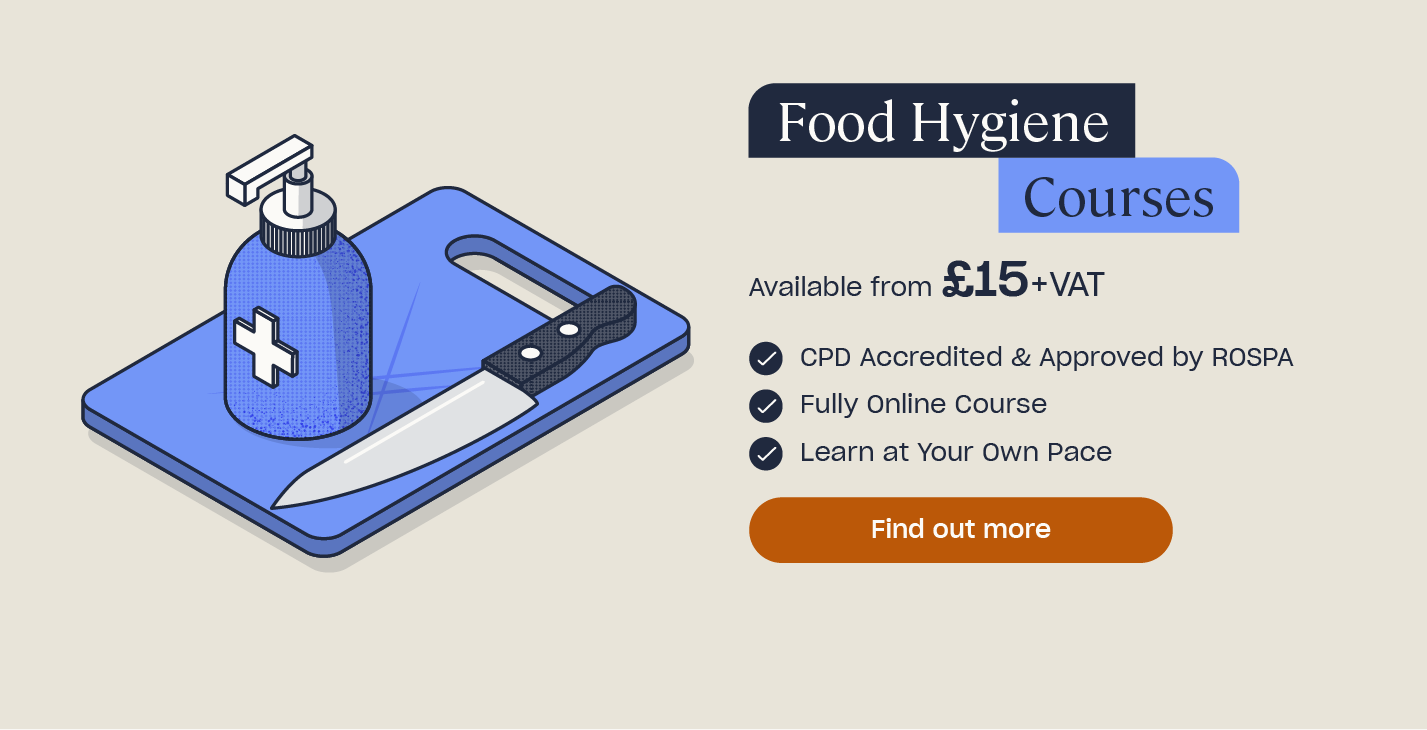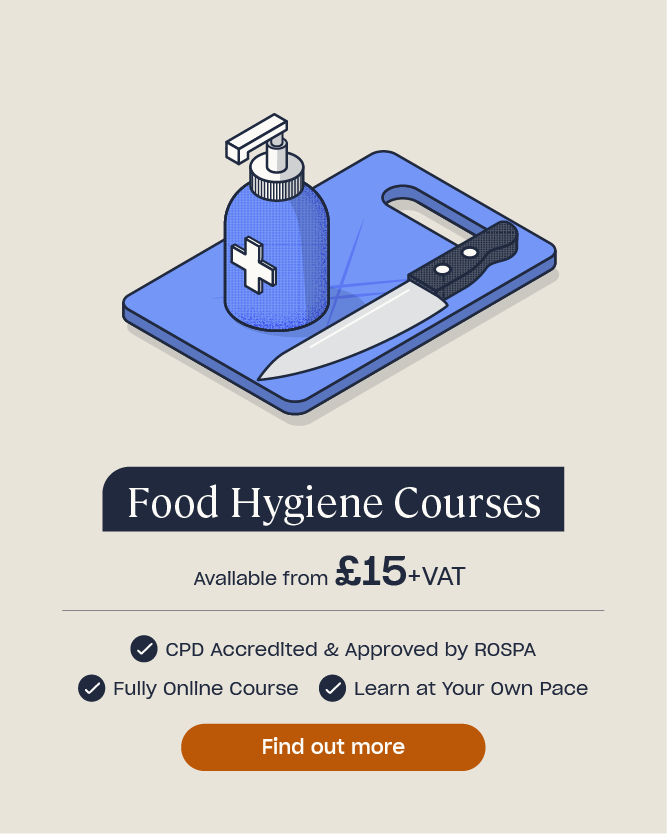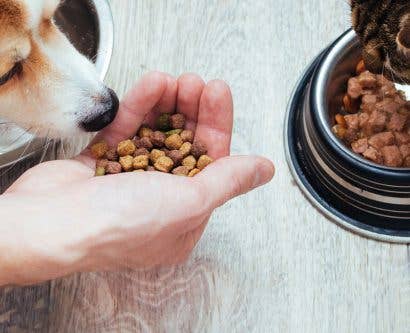How Long Does Food Last in the Freezer? A Storage Guide
You can freeze virtually all foods (with the exception of some, e.g. eggs in the shell which expand and crack). Food can remain frozen indefinitely and technically be safe to eat, as bacteria will not grow. However, over time all frozen food will deteriorate in quality and become unappetising to eat when defrosted. The time it takes for this deterioration to happen varies between foods.
Storage times for frozen food varies depending on the type of food and what type of freezer you have. Freezers have a star rating to indicate how long food can be safely stored. Checking this rating, as well as instructions on food packaging, is a good starting point for determining how long you can safely keep frozen food.
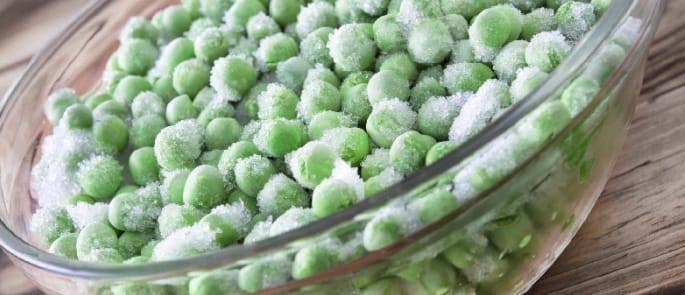
The Freezer Star Ratings
* = the freezer temperature is -6°c and food can be stored for 1 week.
** = the freezer temperature is -12°c and food can be stored for 1 month.
*** = the freezer temperature is -18°c and food can be stored for 3 months.
**** = the freezer temperature is -18°c and food can be stored for 3 months or longer.
Look at the packaging of frozen food to find guidance on how long the food can be stored using freezers of a certain star ratings. Also, be aware that freezers should ideally always run at -18°c.
Want to Learn More?
Our Online Food Hygiene Courses are designed to ensure a comprehensive knowledge of all food safety and hygiene procedures. You can also take a look at all of our Food Hygiene guidance and resources on the Hub here.
How Long Do Frozen Vegetables Last?
Vegetables can be frozen for up to 8-12 months. Their frozen life varies depending on the best by date, the preparation method, and how they are stored. Keep them at a constant temperature and do not continuously refreeze them.
With proper storage, they can often last beyond the date. But they will have likely deteriorated in quality and may not be as appetising or nutritious. Always follow the instructions on the packaging.
You can usually tell by looking if frozen veg isn’t fit to eat anymore. Indications include excessive, caked-on ice crystals, a loss of colour in the veg, and a shrivelled state.
Consider puréeing high water content vegetables (like tomatoes) before freezing, particularly if you intend to use them in that condition, e.g. for sauce.
How Long Does Frozen Fruit Last?
Fruit can be frozen for around 8 months. It can last for longer if it has been unopened. Its life also depends on its best by date at the time of freezing, how it was prepared, and how it is being stored. Keep them at a constant temperature and do not continuously refreeze them.
Fruit usually has best before dates, meaning it can last beyond this time if stored properly. But the taste and texture may have changed, so use your common sense to tell whether it’s still good to eat or not.

Fruit that has a dull colour or frosty look, with white-coloured ice, is probably well past its best and will taste bland.
Follow these tips when freezing fruit:
- Purée or stew fruits (such as apples and strawberries) that you intend to use in jam, pie fillings, smoothies, and sauces. This saves space and can help it stay fresh for longer. For products such as strawberries that do not freeze well, it is especially beneficial.
- Consider making fruits into sorbet or ice cream products to be served directly from frozen.
- If serving frozen fruits as fresh, serve them when they still have a small amount of ice remaining. This gives them a firmer texture.
How Long Do Frozen Bananas Last?
Frozen bananas are best used within six months. If you are wanting to freeze whole bananas, it’s recommended that you peel them first, as this can be difficult to do once they are already frozen.
You can freeze sliced bananas, too, and in this case it’s recommended to freeze the slices on a tray first until they are solid, and then transfer them into a labelled resealable bag.
How Long Do Frozen Strawberries and Blueberries Last?
As with most fruits, frozen strawberries and blueberries can be frozen for around 8 months, providing they remain fully frozen and the correct temperature of the freezer is maintained.
When it comes to freezing strawberries, it’s recommended that you wash them, cut off the stems and lay them on a tray – either whole or cut – in order to freeze.
Blueberries, on the other hand, do not need to be washed before they are frozen as they have a natural coating on their skin which protects them from bacteria or pests. You can freeze blueberries as they are, without any need for preparation.
Can You Freeze Cooked Chicken?
In short: yes. You can freeze virtually all types of cooked meat, as long as you do it properly. Many ready meals, which contain meat, are cooked and then frozen, so the same principle applies to home freezing.
Make sure you cook the chicken thoroughly and leave it to cool before freezing (don’t leave it for longer than 2 hours though).
Keep frozen cooked meat for no longer than three to six months.

Follow any instructions for home freezing on the packaging of chicken and other meats. Consider marinating it before cooking to improve the texture or flavour for when it’s defrosted.
Follow these tips when freezing chicken, fish, pork, beef, and other meat:
- Trim off excess fat before freezing. Greater amounts of fat increase the risk of rancidity occurring during frozen storage (this doesn’t make it unsafe, but makes it unappetising to eat).
- Always defrost meat slowly and safely, preferably for a few hours in the fridge. Make sure it’s in a suitable container and on the lowest shelf (not in the veg drawer) so it doesn’t drip onto other foods.
- Do not cook chicken directly from frozen. You must defrost it first.
- Don’t put stuffing in meat or poultry before freezing. It can keep growing bacteria before it’s fully frozen.
- Wrap the meat properly or keep it in sealed containers, otherwise it may get freezer-burn.
Can You Freeze Mince Meat?
Yes. The best way to freeze it is flat, rather than rounded. This enables the mince to freeze and thaw evenly.
Keep it in the freezer for no longer than 2 to 3 months.

Always follow home freezing instructions on the packaging if you’re uncertain. Also, be sure to cook it as soon as possible after defrosting.
If all the meat has turned a greyish colour, it’s an indication that it is no longer good.
Can You Freeze Sausages and Bacon?
Yes. You can keep sausages and bacon frozen for up to 2 months before they deteriorate in quality. They will still be safe to eat after 2 months but may have lost some of their flavour and texture. Remember that the fat on meat goes rancid if left too long (it will look and taste unpleasant, but isn’t dangerous), so trim fatty bacon before freezing.
How Long Does Frozen Bread Last?
You can keep bread and pastries, such as cakes, frozen for up to 3 months before they start to lose their quality.
Follow these tips when freezing bread:
- Make sure you keep it in an air-tight, freezer-safe container or in its original packaging.
- Bread fresh from an in-store bakery is often open or wrapped in paper or thin film that will prevent the bread from freezing well. Replace them with sealable freezer bags or plastic freezer wrap when freezing.
- If freezing your own baked bread, be sure to let it cool before freezing to prevent sogginess or mould.
- When defrosting bread, remove any ice within the pack, as this can thaw and cause the bread to become soggy in places.
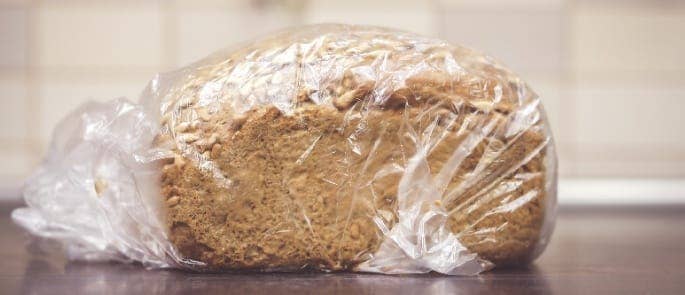
How Long Does Frozen Milk Last?
Milk can be safely stored in the freezer for 3-6 months, providing it was in date at the time of freezing. However, it’s widely recommended that the milk is used within one month of freezing.
As it is a liquid, milk will expand in the freezer so you should never freeze glass milk bottles as they could shatter. It is also helpful to pour a bit of milk out of the carton before freezing so that there is room for it to expand while in the freezer.
Milk is known to absorb odours from surrounding foods, so it should be stored away from any seafood products (or other strong-smelling foods) in order to preserve its taste.
How Long Does Frozen Fish Last?
In general, raw fish should be eaten within 4 months of it being frozen. This is because the quality will start to deteriorate after this time, even though it should be safe to eat after this limit.
The same storage guidelines apply to processed fish; however, freezing time limits vary depending on the type of fish and the process it has undergone. For example, smoked fish should be used within 2 months, whereas oily fish (such as salmon or sardines) should be used within 2-3 months. If you’re unsure as to how long your fish will last in the freezer, always follow the manufacturer’s guidelines.
Other Tips For Freezing Food
- Leftovers and batch cooking can last for up to 3 months in the freezer. Try to minimise overfilling plates, or serve from a central bowl, so that it’s easier to freeze leftovers from the pan. Make sure to put it in an air-tight container.
- Raw eggs can be frozen for up to 12 months, but must be removed from the shell and blended together. If you want to freeze either the yolk or white separately for use, be sure to separate them, but be aware that the yolk may thicken. Add 1/8 teaspoon of salt to 1/4 cup of egg yolk for savoury cooking or 1 1/2 teaspoons of sugar for sweet dishes.
- Freeze sauces separately (from the pasta or rice) if possible, as sauces generally store for longer.
- Sauces (that you’ve made to go with rice or pasta) may thicken in the freezer. Therefore, you should add extra water after thawing (when reheating the meal) rather than before freezing.
- Milk can sometimes curdle or separate when frozen, depending on its fat content. Semi or full skimmed milk is likely to freeze most successfully. Don’t worry if it separates; after thawing simply shake the bottle. The same is true for yogurt: just give it a good stir.
If you want to learn more, why not take a look at our articles on How to Defrost a Freezer, The Temperature Danger Zone for Food, or advance your knowledge further with our Food Hygiene training.
What To Read Next:
- Can You Reheat This?
- How to Store Food in the Freezer
- What Can I Cook From Frozen?
- How to Reduce Food Waste at Home
- Do You Know Which Fridge Shelves You Should Store Your Food On?
- Can I Freeze This & For How Long?
- Can I Cook This From Frozen?
- Answering Your FAQs About Egg Safety
- Safe Temperatures for Food Storage: A Free Guide to Cooling and Chilling Times
- Using a FIFO Food Storage System
- Food Preservation Methods and Guidance
- Guidance on Storing Leftovers and Partly Opened Foods
- How to Prevent Food Spoilage
- Level 2 Food Hygiene Training for Catering


